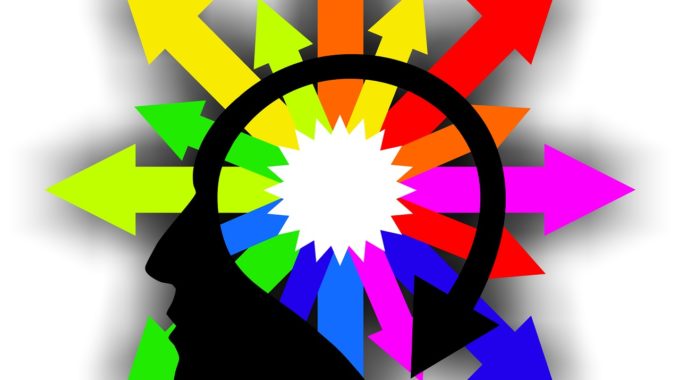How about - for starters - wealth and success, a beautiful healthy body and spiritual…

What is Hypnosis? Absolutely Everything You Need to Know
What is hypnosis? You’ve likely seen hypnosis several times in your life.
It might have been at a show.
There was a hypnotist who put a volunteer audience member under “hypnosis“. It only took a few minutes before it seemed that they were completely at the whim of the hypnotist!
Luckily for the guest, they were not asked to do anything too embarrassing.
You might have seen hypnosis in the movies.
Where somebody took a watch or a pendulum and waved it in front of the person’s face. After a just a few seconds, they’re put into a deep trance, and seem to lose complete control of the conscience.
In the film it seemed like the hypnotist had bad intentions behind their actions. They could get the hypnotized subject to carry out their evil deeds!
Fiction and show stopping gimmicks aside, these events do not represent hypnosis at all. It is easy to look at these events and disregard hypnosis as a scam.
It almost looks as if the people get paid in advance to pretend as if they are ‘hypnotized’.
In this comprehensive guide, we are going to tell you EXACTLY what is hypnosis and what it is not.
So to answer the question, what is hypnosis, we will tell you about the background of hypnosis and some of its uses throughout history. We will explain the scientific research that shows how hypnosis is a valuable and useful tool.
We will illustrate how you can use hypnosis to help yourself!

What is Hypnosis? The REAL Definition, Defined by Accredited Experts
It can be hard to know what the definition of hypnosis is because there are so many different ones.
In other words, you allow yourself to follow the suggestions given to you by the hypnotist.
This is NOT a form of mind control – you have the power to think what you want.
People find it works best when you allow yourself to follow the hypnotist’s suggestions. You could even argue that all real hypnosis is ‘self hypnosis’.
Psychologist John Kihlstrom says (VeryWell, 2016) “The hypnotist does not hypnotize the individual. Rather, the hypnotist serves as a sort of Coach or Tutor whose job is to help the person become hypnotized.

Hypnosis is NOT About Vulnerable Sleep!
Another thing to note is that you are not asleep while in a state of hypnosis. Every person under hypnosis will have different feelings.
Some people say they feel relaxed. Others claim they are aware of what is happening during the process.
Under hypnosis, you experience focused relaxed attention, visual fantasies, and openness to suggestion.
A relaxed mind allows suggestions to bypass the conscious mind and enter the subconscious. This is where real and meaningful change can happen.
Don’t worry about being hypnotizable enough for hypnosis to work!
Stanford University psychologist Dr. David Spiegel says that “you can get a lot of benefit even if you’re just moderately hypnotizable if you use it” (ABC News, 2008).
 How Does Hypnosis Work? Proven, Researched Answers
How Does Hypnosis Work? Proven, Researched Answers
Psychology Today writer Deirdre Barrett explains the power of hypnosis (Psychology Today Staff, 2001):
“A hypnotic trance is not therapeutic in and of itself, but specific suggestions and images fed to clients in a trance can profoundly alter their behavior…they lay the groundwork for powerful changes in their future actions”.
Hypnosis is an effective tool for improving your mindset, according to neuroscientists.
The most important thing to remember about what hypnosis is, is that hypnotists are not magicians.
According to an Australian Family Physician paper (Wong et al., 1995):
“Hypnotists do not possess any magical powers. It is the patient who possesses the magic; the hypnotist merely unlocks this power”.
The hypnotist allows you to bypass your conscious mind through relaxation. This helps you change your limiting subconscious beliefs that prevent the changes you seek.
Is hypnosis real? True hypnosis – which is a form of relaxation and receptivity to suggestions – is real. False hypnosis is any kind of hypnosis where people appear to do things they don’t want to do.
What you need to remember when asking what is hypnosis, it’s not about giving up control to anyone. It’s quite the opposite: Hypnosis is all about regaining control over your mind.

How Old Is Hypnosis? A Long History of a Super-Human Power
Hypnosis has been around since ancient times. It is a word that comes from ancient Greek and translates to “a mental state – like sleep”.
What you may not have known is that hypnosis has served as a way to manage pain during medical surgeries.
An American Psychologist paper (Jensen et al., 2014) explains why doctors find hypnosis interesting. “Hypnosis has been used to treat every type of pain condition imaginable over centuries and across cultures (Pintar & Lynn, 2008).What is new about hypnotic analgesia is the compelling empirical evidence that has emerged in the last two decades regarding its efficacy and mechanistic underpinnings. One of the most consistent research findings is that hypnotizability scores are very stable, even across decades”.
Hypnosis has become more popular because of how simple it is.
You do not need any special tools or expensive procedures. Dr. David Spiegel had this to say to the New York Times (New York Times, 2011):
“It is an effective and inexpensive way to manage medical care,” said Dr. David Spiegel, director of the Center on Stress and Health at Stanford University School of Medicine and a leading authority on hypnosis… “If you have a medical condition for which conventional medicine is not working, or you’d like to try a gentle mind-body alternative, hypnosis may be worth considering”.

What is Hypnosis Good for? It’s an Awe-Inspiring List
Now you know what hypnosis is and what it is not. You may be asking yourself: “What kinds of things is hypnosis used to treat?” You will find that hypnosis can improve or even heal many common conditions and ailments.
Here are a few examples of where it is effective:
Powerfully effective pain management
“Findings from controlled trials indicate that hypnosis is effective for reducing chronic pain intensity on average. Importantly, hypnosis for chronic pain has few negative side effects. In fact, with hypnotic treatment, most patients report positive side effects, such as an improved sense of well-being, a greater sense of control, improved sleep, and increased satisfaction with life”.(American Psychologist, February-March 2004).
Scientific evidence (UK College of Hypnosis & Hypnotherapy, 2016) says hypnosis works for:
Putting a stop to sexual dysfunction
“In a study of 189 people with psychological issues relating to sex, it was proven that self-hypnosis combined with cognitive therapy was more effective than cognitive therapy alone”
“Following an extensive review of the existing literature on hypnotherapy, the British Medical Association concluded that hypnotherapy was not only effective but may be ‘the treatment of choice’ in dealing with anxiety (‘psychoneurosis’) and stress-related (‘psycho-somatic’) disorders”
“Over a six-year period, 173 successive patients suffering from asthma were treated using self-hypnosis, 82% were either much improved or experienced total remission of symptoms.”
These are only a few of the many uses of hypnosis. A Huffington Post article by Sarah Klein (Huffington Post, 2014) lists other benefits. “Improve deep sleep…ease symptoms of irritable bowel syndrome…quell hot flashes”.
There are many more ailments that hypnosis can cure, but the point is clear. Hypnosis is effective for treating some of the most common problems that people experience.
You can find top quality audio hypnosis downloads from licensed hypnotists. They can help you with everything from changing behaviors to reaching your goals. Hypnosis therapy like this is beneficial since you can listen whenever you like or before bed.
 Is Hypnosis Safe? You Bet it is!
Is Hypnosis Safe? You Bet it is!
Hypnosis is completely safe at any time where it is safe to close your eyes and relax.
It is best if performed by a Certified Hypnotist in person or on an audio hypnosis downloads. A trained hypnotist helps you relax and guides you through pre-prepared suggestions.
What does the science have to say about this?
Skeptics might say that hypnosis provides patients with the illusion of healing.
The American Psychologist paper previously referenced explains why doctors find hypnosis interesting:
“Findings from controlled trials indicate that hypnosis is effective for reducing chronic pain intensity on average. Importantly, hypnosis for chronic pain has few negative side effects. In fact, with hypnotic treatment, most patients report positive side effects, such as an improved sense of well-being, a greater sense of control, improved sleep, and increased satisfaction with life”
Hypnosis is also free of harmful side effects. This is something that you will never hear with any modern medical treatment! Here is what the research says (Hammond et al, 2007) about the safety of hypnosis:
“…it meets the clinical psychology research criteria for being a well-established and efficacious treatment and is virtually free of the side effects, risks of adverse reactions, and ongoing expense associated with medication treatments.”

Does Hypnosis Work? The Recognized Scientific Consensus Is…Yes!
Now that you know the answer to the question, what is hypnosis, the next question is: Does hypnosis work? The evidence shows that this is the case.
What we are missing now is whether we can apply hypnosis as a form of self-help.
It is clear that hypnosis can help the body heal. Can it do the same for our minds?
Attention Deficit Disorder (ADD) makes it difficult to pay attention to one thing at a time. Hypnosis is just as effective as ADD medications (Psychology Today Staff, 2001)! “Research shows that hypnosis is as effective as Ritalin in treating ADD in children. (Presented at the American Psychological Association Meeting, 1999)”
What does this mean for you? You can use self-hypnosis to increase your concentration and boost your productivity. You will be able to get more done in less time without getting distracted.
How about addiction? Many people report that addiction feels like you are no longer in control of your actions.
Good news – hypnotherapy can help conquer addictions!
That wasn’t the only study supporting this conclusion (Pekala et al., 2004):
“The results suggest that hypnosis can be a Useful adjunct in helping chronic substance abuse individuals with their reported self-esteem, serenity, and anger/impulsivity.”
Hypnosis is also the most effective way of quitting nicotine addiction (New Scientist, 1992):
“Richard Doll, the epidemiologist who carried out the pioneering studies of the risk of smoking, said that the apparent success of hypnosis and the high quitting rate of patients with heart disease backed his own observations.”

Hypnosis Can Supercharge Your Fitness Levels!
Hypnosis is effective in dealing with mental health problems. It is a useful tool for taking control of our consciousness and fighting strong urges.
How can we use hypnosis to shed some pounds off our waistline?
A comprehensive analysis of the research shows that hypnosis works for losing weight. Here are the exact findings:
Hypnosis is over 30 times as effective for weight loss
- Hypnosis subjects lost more weight than 90% of others and kept it off
- Two years later: Hypnosis subjects continued to lose significant weight
Given that keeping off weight is a huge struggle for people on a diet, it is worth giving hypnosis a try.
You don’t need a fancy diet, a brutal exercise program, or expensive coaching sessions. You only need the power of hypnotic suggestion and an open mind.
Losing weight will happen on its own. The days of struggling to lost those last few pounds will be in the past.
What Is Hypnosis? Now You Know the Uncensored Truth
Hypnosis is considered to be one of the safest and most effective ways of treating modern medical problems. It works for issues effecting – both of the body and the mind.
Newcomers should try the leading self hypnosis audio downloads available online from certified hypnotherapists. After a few sessions, you will be on your way to rapid self improvement and success!
Now you know the answer to the question, what is hypnosis?
But you may be wondering, is hypnosis right for you? What are the specific areas is your life that could benefit from hypnosis? When will you begin?






